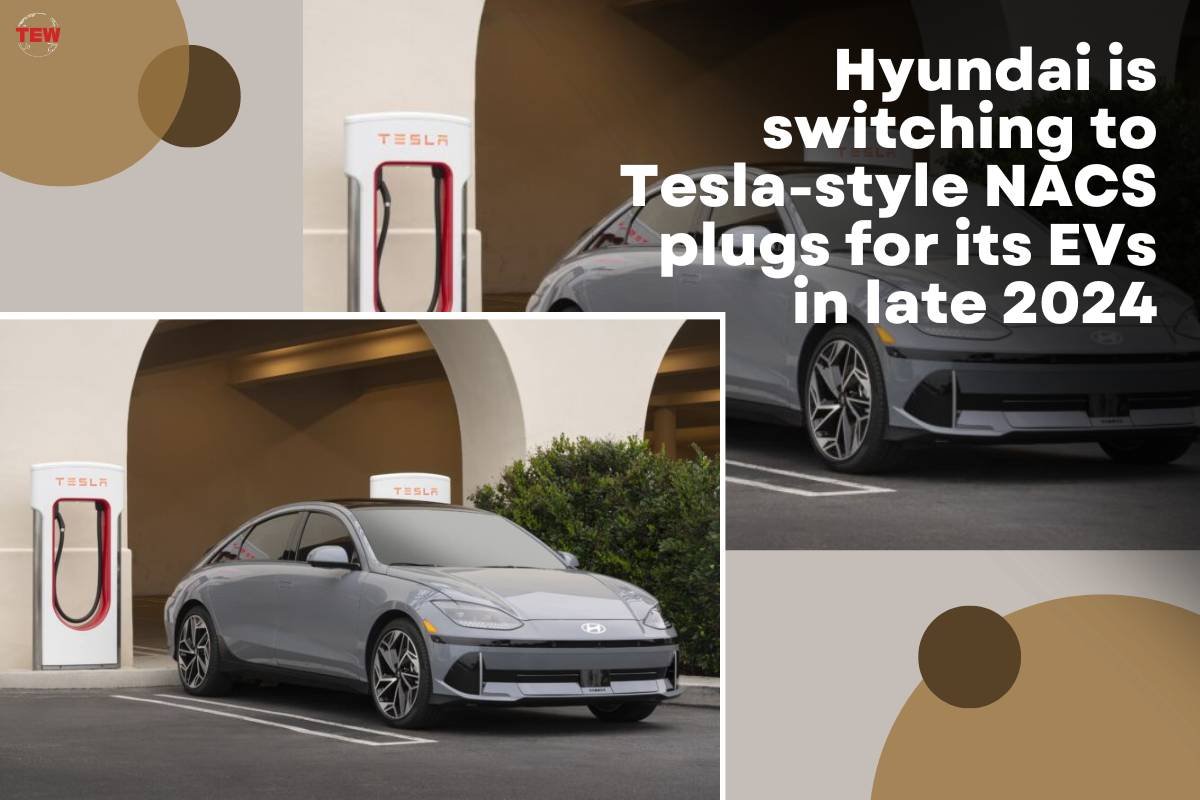On Thursday morning, Hyundai made an announcement that it is the most recent automaker to embrace the North American Charging Standard (NACS) for its electric vehicles. Tesla developed NACS, which was opened up late last year. Since May, several automakers have committed to replacing the existing Combined Charging Standard plug with the smaller and lighter North American Charging Standard (NACS) alternative. Additionally, they have been negotiating access to Tesla’s robust Supercharger network.
High-powered charging network
Ford was the first to adopt this approach, and subsequent announcements followed a similar pattern. New EVs from 2025 will come with native North American Charging Standard (NACS) ports, and a CCS-NACS adapter will be available in 2024, enabling other brands’ EVs to charge at Supercharger stations. However, Hyundai’s timeline differs slightly for attention-catching purposes.
Hyundai plans to begin incorporating NACS ports (instead of CCS1) into “all-new or refreshed Hyundai EVs” for the US market in Q4 2024, with Canadian EVs following suit in the first half of 2025. Furthermore, an adapter that allows existing Hyundai EVs with CCS1 ports to charge at Superchargers or other NACS fast chargers will be released in the first quarter of 2025, according to Hyundai.
José Muñoz, President and Global COO of Hyundai Motor Company and President and CEO of Hyundai Motor North America, expressed, “Our collaboration with Tesla marks another significant step in our commitment to providing exceptional EV experiences to our customers. This new partnership will give Hyundai EV owners confidence in their ability to conveniently charge their vehicles and complements our joint venture company’s efforts to create a new, high-powered charging network with at least 30,000 stations across North America.”
IT’S OFFICIAL! Hyundai, Kia, and Genesis switching to North American Charging Standard in 2024!
Earned multiple accolades
There had been speculation that Hyundai was delaying its adoption of North American Charging Standard (NACS) and access to the Supercharger network because its latest generation of EVs operates at 800 V. In contrast, Tesla’s current third-generation Superchargers operate at 400 V, although the fourth-generation equipment is rumored to be rated at 1,000 V. However, Hyundai’s E-GMP batteries, while rated at 800 V, were designed to be compatible with 400 V chargers by using the motor and inverter to convert the 400 V input into 800 V for the battery.
Hyundai currently has three fully electric models available in the United States. Among them, the Ioniq 5 and Ioniq 6 share specialized EV engineering and have earned multiple accolades. The third model, the Kona Electric, is an all-electric variant of the Kona compact SUV. Kia, a subsidiary of Hyundai, offers the EV6, which shares its engineering with Hyundai’s Ioniq SUVs, and the Niro EV, which shares engineering components with the Kona.





